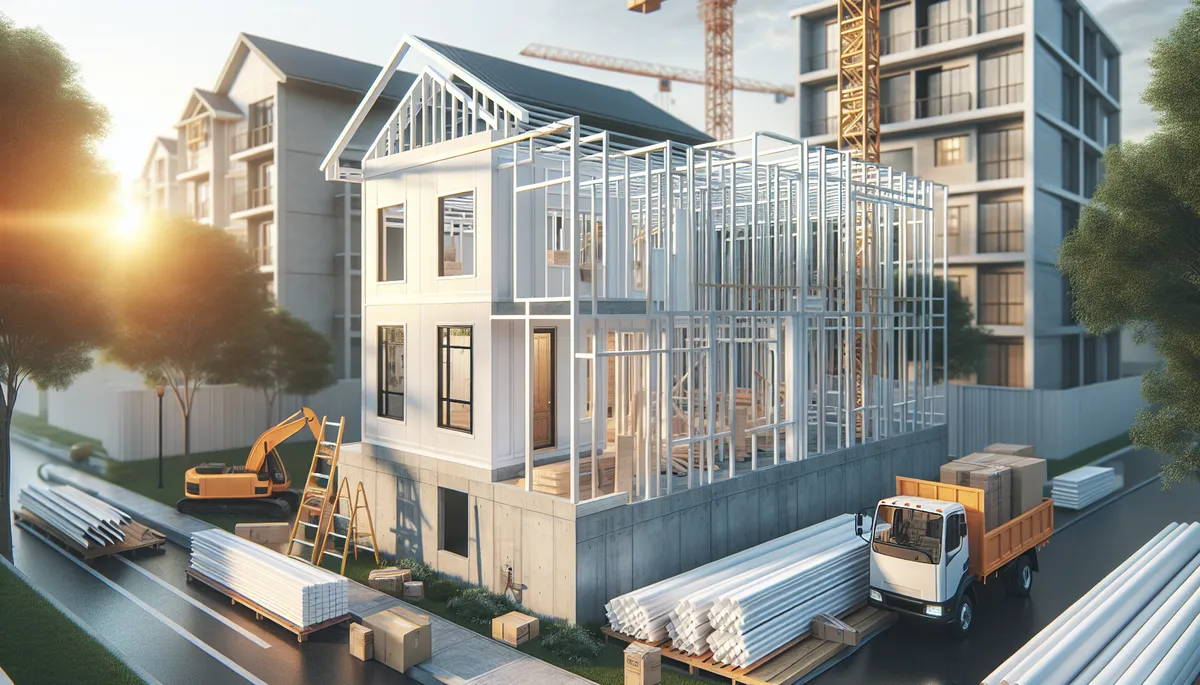When it comes to building a durable, energy-efficient structure, house wrap plays a crucial role. Acting as a weather-resistant barrier, it prevents moisture intrusion, reduces air leaks, and supports long-term structural integrity. But today’s builders face an important choice: custom vs standard house wrap. Which one offers the best balance of performance, durability, cost, and long-term value for your project?
Let’s break down the differences to help you make the right decision for your next build.
What is House Wrap and Why Does It Matter?
House wrap is a synthetic material installed beneath siding to protect against water infiltration while allowing moisture vapor to escape. This ensures walls stay dry, preventing mold, rot, and reduced insulation performance. In colder climates, it also minimizes drafts and helps maintain consistent indoor temperatures.
Whether you’re constructing a new home, multi-family complex, or commercial property, choosing the right house wrap can mean the difference between a building that lasts decades and one plagued by premature issues.
Standard House Wrap – The Industry Staple
Performance and Protection
Standard house wraps are widely used across North America because they provide reliable, tested protection against rain and wind. They are designed to resist bulk water while maintaining breathability so walls can dry out naturally.
Durability in Different Climates
While dependable, standard wraps vary in strength depending on brand and type. They generally perform well but can degrade faster when exposed to prolonged UV rays, high winds, or extreme weather during construction delays.
Cost and Accessibility
Standard house wrap is the more budget-friendly choice. It’s widely available at building supply stores and is often included in bulk construction packages, making it an easy go-to for builders and contractors looking to keep costs down.
Custom House Wrap – A Tailored Solution
Enhanced Performance Features
Custom house wrap often goes beyond the basics. It can be manufactured with advanced water resistance, higher vapor permeability, and stronger tear resistance – features that improve overall building performance.
Durability and Long-Term Value
Designed to withstand tougher environments, custom wraps provide added peace of mind for long-term projects or in regions with harsh weather. This increased resilience reduces the risk of costly repairs or replacements down the line.
Cost Considerations
While custom wrap typically costs more upfront, the investment can pay off. The added strength, longevity, and energy efficiency may offset replacement and maintenance costs over time, particularly in demanding builds or commercial properties.
Branding and Customization Options
One of the biggest advantages of custom house wrap is branding. Builders and developers can have their company logo, contact details, or custom designs printed directly on the material. This not only protects the structure but also serves as free advertising on every job site. For example, custom house wrap allows contractors to combine protection with powerful on-site brand visibility.
Custom vs Standard House Wrap – Key Comparisons
Performance
-
Standard Wrap: Reliable, tested, and effective for most projects.
-
Custom Wrap: Enhanced resistance to moisture and air leakage, ideal for performance-driven builds.
- proper house wrap installation
Durability
-
Standard Wrap: Adequate for typical climates, may require replacement sooner in harsh conditions.
-
Custom Wrap: Built for long-lasting protection, especially beneficial in high-wind, wet, or cold environments.
Cost
-
Standard Wrap: Lower upfront investment, budget-friendly for smaller or cost-conscious projects.
-
Custom Wrap: Higher upfront cost but greater long-term savings from reduced risk of damage and extended lifespan.
Customization
-
Standard Wrap: Function only – no branding options.
-
Custom Wrap: Offers visual branding opportunities that double as marketing, giving contractors an edge.
Which Option is Right for Your Build?
Choosing between custom and standard house wrap depends on your priorities:
-
Residential Builds: Standard wrap may be sufficient for typical single-family homes, especially in moderate climates.
-
Commercial Projects: Custom wrap provides additional durability and branding advantages, making it a strong choice for developers.
-
Builders & Contractors: Those looking to stand out in competitive markets benefit from custom-printed wraps that showcase their brand on every site.
-
Homeowners: If long-term protection and energy efficiency are priorities, investing in higher-performance wrap could be worthwhile. The plate printing process used to apply logos also plays a significant role in the quality and longevity of custom house wrap.
Final Thoughts on Choosing Between Custom and Standard House Wrap
The decision between custom vs standard house wrap comes down to weighing performance, durability, cost, and customization. Standard wraps are affordable and effective, but custom wraps provide stronger protection and valuable marketing visibility that standard options can’t match.
For builders who want to protect their projects while building their reputation, custom house wrap is often the smarter long-term investment.
Related Resources
Once you have chosen the right product, use our house wrap calculator to figure out how many rolls you need.
Frequently Asked Questions
What is the difference between custom and standard house wrap?
Custom house wrap offers personalized branding with company logos and contact information printed directly on the material, while standard house wrap is generic without branding. Custom wrap also typically features enhanced performance characteristics, superior durability, and better moisture management. Beyond protection, custom wrap serves as a marketing tool that increases visibility and professional presentation on job sites.
Is custom house wrap more expensive than standard wrap?
Custom house wrap typically has a higher upfront cost than standard options. However, when you factor in the marketing value, enhanced durability, and potential to win more bids through professional presentation, the investment often delivers strong ROI. The advertising exposure alone can offset the price difference for contractors focused on business growth.
When should you use custom house wrap instead of standard?
Custom house wrap makes sense for contractors building their brand, commercial projects where professional presentation matters, high-visibility job sites, and builders who want to differentiate themselves from competitors. It’s particularly valuable when you want continuous marketing exposure, need to impress clients with attention to detail, or are working on projects where long-term performance justifies the investment.
Can custom house wrap improve job site professionalism?
Yes, custom-branded house wrap significantly improves job site professionalism. A site wrapped with your company logo and branding looks more organized, established, and trustworthy compared to generic materials. This professional presentation can influence client decisions, impress property owners evaluating bids, and signal quality workmanship before construction is even complete.


